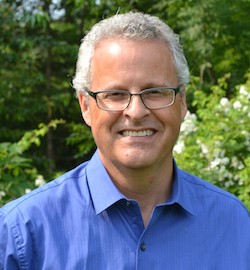In a sense, all students of anything are self-taught. The best teachers are mainly facilitators, presenting their own particular angle on a topic. Certainly, a teacher can offer you facts and figures that you may not have previously known, but offering facts and figures isn’t teaching.
And teachers can help you parse the data, make sense of the tricky bits, and stimulate your interest and imagination. But there is a case to be made that true learning is done on a personal level, where the student pulls together knowledge and experiences to further their own understanding. That might or might not happen with the guidance of a teacher. Answering questions isn’t teaching.
 “Hooks and Riffs: How They Grab Attention, Make Songs Memorable, and Build Your Fan Base“. This eBook is part of “The Essential Secrets of Songwriting” 10-eBook Deluxe Bundle. Get today’s special deal.
“Hooks and Riffs: How They Grab Attention, Make Songs Memorable, and Build Your Fan Base“. This eBook is part of “The Essential Secrets of Songwriting” 10-eBook Deluxe Bundle. Get today’s special deal.
You might wonder how I, a career teacher at all levels of education from primary (age 5) through to university-level, could possibly come to the conclusion that most students are self-taught. Does that mean I’ve been wasting my time all these years? (A (hopefully) small chorus of former students are yelling “YES!” right now.)
Certainly in today’s world, anyone with suitable motivation can learn almost anything if they are interested enough in a topic to read, watch videos, and pull together information from a large variety of sources. Yes, it’s truly becoming a Wikipedia-ish world.
But what about songwriting? Can songwriting be taught? Let’s ask that question with a bit more precision: Can a person who has weak songwriting skills be shown the ways in which their technique is lacking, and then become a better songwriter? Does that require a teacher?
Even without a person designated as the teacher, it’s possible to learn anything and everything about songwriting, assuming you are highly motivated, start with a strong desire to learn, and approach the topic with a good dose of curiosity. But let’s answer some questions that deal specifically with learning songwriting.
Q- Can a songwriting coach help you learn?
A- A coach who understands the basic principles of good songwriting, and who can cogently describe the ways in which the student’s music is missing the mark, should be able to help. A good songwriting coach needs to be:
- Someone who understands why good music is good, regardless of genre.
- Someone who is familiar with the history and structure of music in your genre of interest.
- Someone who can articulate how your songs are missing the mark, and then show you how to fix those errors.
Q- Does improvement require a teacher?
A- No. If it did, we’d never have the hundreds or thousands of excellent songwriters that have written, or are now writing, great music. But that’s not the same thing as saying that teaching won’t help you. I strongly believe that good teaching can get you to a place of excellence quicker and with less frustration than going it alone.
Q- How can I learn without a songwriting coach?
A- To learn, at least in this context, simply means to improve by building on previous knowledge, with a determination to change faulty habits. Improving as a songwriter is best done by:
- Listening to music daily, both from within your genre of choice, and from other genres as well.
- Reading interviews with good songwriters.
- Reading texts written by good teachers.
- Playing your songs for other musicians, and being willing to accept respectful criticism with an open mind.
- Being willing to change your approach to songwriting.
In that sense, by having no teacher, you take on many teachers: songs, songwriters, instructors, musicians, and anyone and everyone else you come in contact with in your songwriter’s world.
I wrote the 10 eBooks contained in “The Essential Secrets of Songwriting” bundles specifically for those of you who believe that one can become a better composer of music through self-help and self study. I don’t think that improving your skills absolutely requires a teacher or coach, but having said that, there are times when a coach can straighten you out and get you moving again in the right direction.
If a songwriting coach is something you’re considering, keep the following in mind:
- Find someone who’s approach to music is similar to your own. If your style of music isn’t the kind you’d find on the Billboard Hot 100, don’t hire someone who uses the Billboard Hot 100 as a model for success.
- Find someone who respects the work you’ve already done. A good coach will want to listen to your music before they agree to take you on as a student. A good coach will want to know what you’ve done, where you are as a songwriter, and will want to find the good in your music first before agreeing to become your teacher. Good teachers think carefully about who you are as a songwriter.
- Find someone with a positive approach. Instruction by intimidation never works.
- Find someone who guides rather than dictates. To guide simply means that the coach is willing to accept your musical ideas, and then help you hone those ideas into excellent music. They do not try to change who you are or what you are trying to express. They simply help you find the best way forward.
Finding an appropriate coach in your location, if that’s what you’re needing, can be tricky. Speak with musicians in your town/city area, and start asking questions. You may only need one session, just time with someone who can give you a bit of advice and encouragement.
Try signing up for a local songwriters’ circle — that can be a good way to find out who is in your area, and what they might be willing to help you with.
 Written by Gary Ewer. Follow Gary on Twitter.
Written by Gary Ewer. Follow Gary on Twitter.
 “The Essential Secrets of Songwriting” eBook Bundles cover every aspect of songwriting technique. How to write better melodies, chord progressions, lyrics, and more. The bundle packages contain hundreds of chord progressions you can use as is, or modify as you see fit.
“The Essential Secrets of Songwriting” eBook Bundles cover every aspect of songwriting technique. How to write better melodies, chord progressions, lyrics, and more. The bundle packages contain hundreds of chord progressions you can use as is, or modify as you see fit.











Paul Mc Cartneys father ran a Jazz Band and he was a competitive
Piano player , Undoubtedly the musical bent was handed down to
Paul; His father also briefly taught John and Paul Vocal harmony
Paul and John came together with a chance meeting, they were both
at a stage when each new and used a few guitar chords,
They obviously got on together and although both had individual Character
Traits , they both benefited from each others talent
They were self taught but maybe the ability to bounce ideas around was
a massive help two one another
They were using Chord sequences that had been underused by the majority
of European Composers, at that time
The Guitar was boths principle instrument , and the added bonus of two voices
that blended together was another big pointer
The fact that they learned their stage art in seedy German Night Clubs sleeping
away from home in what we describe as Doss Houses , showed how keen they
were to conquer the art of Singer/ Songwriter
The mere fact that George even started writing beautiful sings like SOMETHING
is another extraordinary part of the equation ;
Paul has often stated that his secret was trial and error Re Writing until every phrase
played it’s part in every song they recorded
Very interesting thoughts, Peter. Thanks for sharing.
-Gary